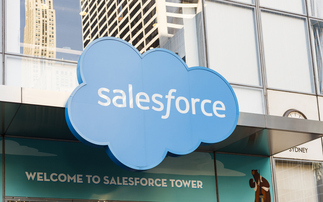Reports are circulating of a Yahoo/Google alliance to stave off the Redmond proposal
Proposed merger is worth $44.6bn Microsoft's proposed $44.6bn (£22.4bn) takeover of Yahoo has fuelled widespread conjecture over the possible fate of both companies. Inside contacts at Yahoo ...
To continue reading this article...
Join Computing
- Unlimited access to real-time news, analysis and opinion from the technology industry
- Receive important and breaking news in our daily newsletter
- Be the first to hear about our events and awards programmes
- Join live member only interviews with IT leaders at the ‘IT Lounge’; your chance to ask your burning tech questions and have them answered
- Access to the Computing Delta hub providing market intelligence and research
- Receive our members-only newsletter with exclusive opinion pieces from senior IT Leaders

















